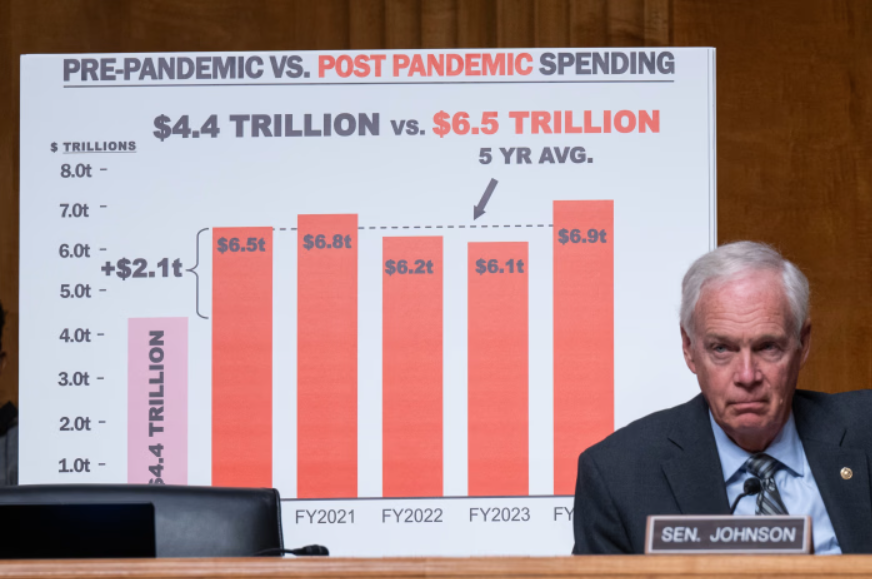Trump’s mega-package—dubbed the “One Big Beautiful Bill”—promised to lock in his 2017 tax cuts, reboot Medicaid, and reshape energy incentives. But behind closed doors, GOP lawmakers are caught in a tug-of-war—struggling between fealty to Trump’s agenda and pressures from fiscal hard-liners. Here’s what’s happening and what it means.

Republicans Are Rewriting Trump’s Megabill
What began as a political spectacle—a “big, beautiful” one-stop solution—has become a legislative labyrinth. In backrooms and marque meetings, Republicans are quietly rewriting, bickering, compromising. The result: a shadow war over America’s economic and social blueprint. Let’s see what emerges from the smoke-filled rooms by Independence Day.
Behind Closed Doors—The Senate Pushback
On June 16, Senate Finance Chair Mike Crapo revealed the GOP’s Senate version. It reverts the SALT cap to $10,000 (from House’s $40K), trims Medicaid expansions, fixes child tax credit at $2,200 (not $2,500), and significantly scales back clean-energy deductions—all while aiming to stick under a $4T ceiling.
But intra-party friction is mounting. Senators Ron Johnson, Josh Hawley, and Rick Scott are blasting it for lack of serious spending cuts—especially in Medicaid—and insistent tiny concessions leave the bill barely recognizable.
House Versus Senate: A Tale of Two Megabills
The House-passed version, largely shaped in secret, included a SALT cap raised to $40K for sub-$500K earners and tightened food-aid and Medicaid rules. It was narrow—a one-vote margin—and laden with late-Memorial-Day tweaks to coax skeptical conservatives.
But this “big, beautiful” package stumbled in committee when conservatives revolted, complaining it added to the deficit—some demanding deeper cuts or threatened to tank the whole thing.
The Deficit Dilemma
Republican leaders—including Trump, Speaker Mike Johnson, and Senate Leader John Thune—claim the package will shrink the national debt. But nonpartisan groups beg to differ. The CBO pegs a $2.4T deficit rise, while a House memo flags $72B added over ten years.
That figure dwarfs GOP claims of offset revenue through tariffs, economic growth, or artificial-intelligence–driven boom.

The Stakes of These Quiet Skirmishes
- Legislative survival: Trump and Johnson are stretching the reconciliation process to bypass Senate filibuster roadblocks. But they can afford only three GOP defections in the Senate—any more could kill it.
- Electoral risk: Hardline conservatives see health-and-aid cuts as red meat; moderates fear backlash in key states like California and New York.
- Policy trade-offs: Senate wants permanent business tax breaks, deeper Medicaid reform, and clean-energy credits restored—that’s a very different bill than House-approved.
I’ve Covered Capitol Hill for years, and this rings familiar: when lawmakers retreat into those closed-door caucus rooms, what emerges rarely resembles the flashy proposals the public sees. What’s hidden are the rowing of aides, the pressure to vote “yes,” the whispered threats—everything that shapes policy before we even hear about it.
Why It Matters
- For voters: Millions stand to lose Medicaid and food aid—even if tax cuts return.
- For Republicans: This is a high-stakes bet on party unity versus a base that now demands ideological purity.
- For the country: The final version will shape tax, healthcare, the deficit—and define Trump’s next term.
What’s Next
The Senate aims to pass a final bill by July 4. But real progress hinges on whether House and Senate versions can be reconciled—and if Trump can cajole enough Republicans without fracturing the conference.
Expect one of two outcomes: a scaled-back bill with deeper cuts and fewer SALT handouts, or a standoff that leaves the 2017 tax cuts hanging—and GOP credibility at stake.
FAQs
Why are Republicans split on SALT?
High-tax state Republicans want the cap lifted to $40K. Fiscal conservatives resist—viewing it as a middle-class giveaway. Senate rewrote it back to $10K.
How many might lose Medicaid?
The House version could strip Medicaid from up to 10 million people; Senate changes may reduce but not reverse that number .
What happens if they don’t reconcile by July 4?
Reconciliation fails—Trump’s tax cuts expire. GOP risk letting Democrats reset tax policy or push for bipartisan deal.






